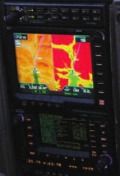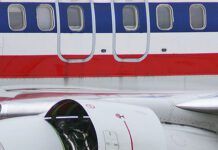 The Senate Commerce Committee this week introduced a bill that would provide funding for the FAA for the next two years without imposing user fees, and would enable the agency to move forward with plans for the NextGen air traffic control system. The Alliance for Aviation Across America, which represents a slew of GA advocacy groups, released a statement on Wednesday commending the effort. “We look forward to now working with the Senate to pass this legislation, which provides the necessary funding for [NextGen], while protecting the small towns and rural communities that rely on general aviation.” AOPA President Craig Fuller also applauded the effort, but added that he is concerned about the short two-year time frame. “AOPA believes that a longer-term funding package based firmly on existing, proven funding mechanisms offers the best assurance of achieving modernization swiftly and efficiently,” Fuller wrote in a “special message to members” posted on the AOPA Web site.
The Senate Commerce Committee this week introduced a bill that would provide funding for the FAA for the next two years without imposing user fees, and would enable the agency to move forward with plans for the NextGen air traffic control system. The Alliance for Aviation Across America, which represents a slew of GA advocacy groups, released a statement on Wednesday commending the effort. “We look forward to now working with the Senate to pass this legislation, which provides the necessary funding for [NextGen], while protecting the small towns and rural communities that rely on general aviation.” AOPA President Craig Fuller also applauded the effort, but added that he is concerned about the short two-year time frame. “AOPA believes that a longer-term funding package based firmly on existing, proven funding mechanisms offers the best assurance of achieving modernization swiftly and efficiently,” Fuller wrote in a “special message to members” posted on the AOPA Web site.
“Because full modernization is unlikely to be completed within two years, the need to seek funding could delay or derail modernization efforts midstream, ultimately raising the price tag for completing needed improvements. At the same time, leaving open the possibility of creating and implementing new funding mechanisms, as proposed by budget officials within the Administration, could destabilize funding just when a steady source of revenue is needed most,” Fuller said. The bill still has a way to go — it must get through the Senate, then a conference committee will reconcile the Senate and House measures, before the bill is sent to President Barack Obama for consideration. The Obama administration is already working on a longer-term reauthorization plan that is expected to include new aviation user fees, according to NextGov.com. The Senate version proposed this week would provide about $35 billion for the FAA and would set a target of 2018 for NextGen to be operational nationwide.


































